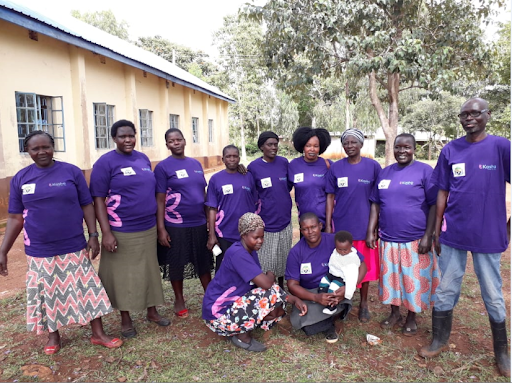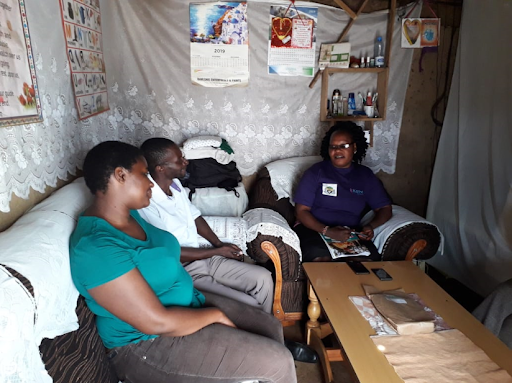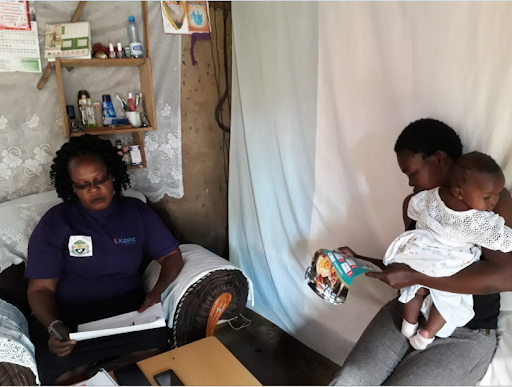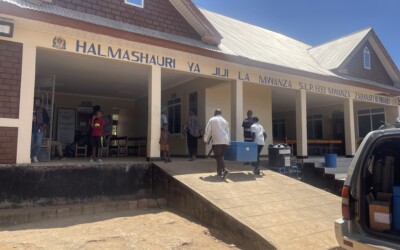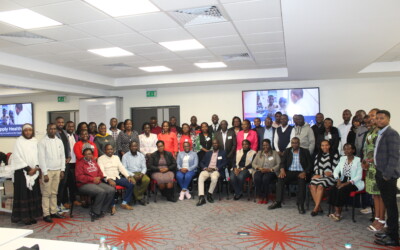The Aim
Kasha, an e-commerce company for women’s health and personal care in East Africa, collaborated with inSupply Health to expand their model of agent-supported e-commerce with last mile delivery outside of Nairobi. Their vision is to expand across the country, enabling greater access to Kasha’s products and accelerating customer acquisition and revenue growth.
The Scope
Kasha engaged inSupply Health to design a strategy and plan of action for possibilities for Kasha to leverage Community Health Volunteers (CHVs) in Bondo Sub County of Siaya county in Kenya to become trained and operate as Kasha Agents. The joint hypothesis was that having CHVs play a dual role as Kasha agents, and offering them the opportunity to generate revenue while building on health goals, would be motivating to them as individuals and help the county meet its overall health goals. As part of this strategy in this year-long project, inSupply’s role was to explore how Kasha might be able to expand intentionally into rural areas, taking advantage of an existing infrastructure of health workers and creating mutually beneficial outcomes through this type of public-private partnership model.
inSupply’s Role
inSupply’s role was to bridge the gap between operating procedures of Kasha and MOH in designing and implementing this model and the supply chain for Kasha at this last mile, while leveraging our relationship with Siaya County and our deep understanding of public sector systems. inSupply also sought to design a sustainability model that would support CHVs to continue in their volunteer capacity as health providers for their communities on behalf of the county, while also being eligible to earn commissions through the Kasha Agent role to supplement the stipend provided by the County Government. A total of 99 CHVs from 8 Community Health Units were identified and trained for piloting this model.
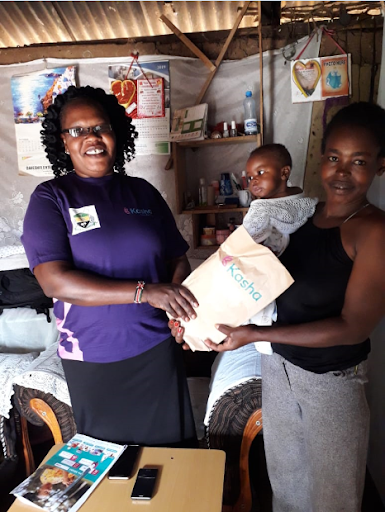
Lessons Learned
The project team generated many lessons, especially around rural logistics and data integration. Ultimately, there were significant bottlenecks related to last mile design and delivery that needed to be redesigned before scaling to other regions. To improve customer experience, CHVs need more training, and need to be a tighter link in the supply chain in picking up and fulfilling orders. And not all CHVs bring an entrepreneurial spirit to the role of a Kasha agent, limiting their potential growth and that of the company. Further intractable issues like dispatch delays need to be communicated beforehand. To improve the experience for the CHVs, different commission and incentive systems could be tried, including ones that involved different promotions and minimal retainers. Depending solely on CHVs might be difficult as an initial launch strategy, given their other responsibilities, but there could be a mixed model with independent agents and CHVs.
Looking Ahead
Launching an ecommerce model in a rural area without previous community understanding of shopping online would be a challenge for any company. Kasha mitigated some of these struggles through training CHVs, as well developing localized systems like USSD that fit the needs of local communities. Through this partnership, important lessons were learned and implemented to help fulfill Kasha’s vision of a network of agent-based sales through both urban and rural Kenya, and eventually throughout East Africa. Kasha is now successfully scaling its rural presence and agent network, with a model informed by lessons from this project.
